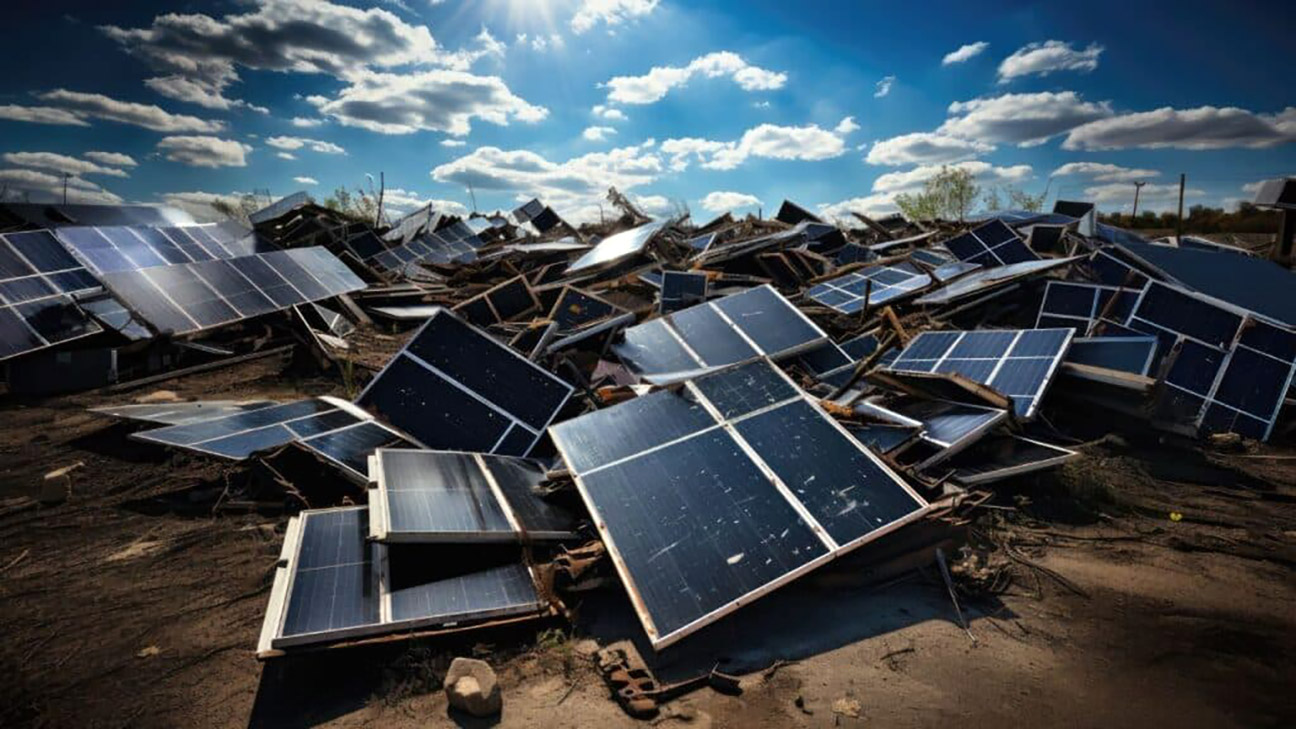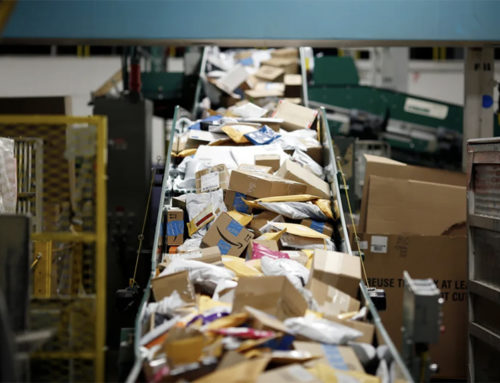As the world enthusiastically embraced renewable energy sources like solar panels and wind turbines, a troubling reality has emerged from behind the curtain. While these technologies promised a cleaner and greener future, the production and disposal processes have left a significant environmental and human toll that demands urgent attention. From the mountains of discarded solar panels to the deforestation caused by the demand for wind turbine blades, the hidden costs of renewable energy should be the narrative of a sustainable tomorrow today.
The rush to rake in dollars on consumer fears with renewable energy has led to an alarming increase in waste, especially from solar panels and wind turbines. Remember all those teenagers knocking on your door to sell you solar on your roof? Those solar companies have made a fortune off your roof with no liability on the waste you have to get rid of. In the United States alone, millions of metric tons of solar panel waste will suddenly appear between 2030 and 2060, posing a significant challenge in terms of responsible disposal. The irony is, all the companies that made a fortune off you will simply be gone by that time. Good luck. Then, there are wind turbine blades, some longer than a Boeing 747’s wingspan, being discarded in dumps across the nation, with no established system for sustainable recycling. Just dump and run, that’s going to be someone else’s problem to live with, forever. The lack of a circular economy for these robust materials duped everyone with the promise of a cleaner and more sustainable future. Lies!

They call this “Someone else’s problem.”
The waste issue was acknowledged by the Environmental Protection Agency (EPA) during the Trump administration, emphasizing the need for a strategic approach to manage end-of-life technologies, but the renewable energies companies teamed with Democrats supporters to squelch the realities in exchange for billions of dollars in profit at the cost of the environment and public health. The expansion of the renewable energy industry, fueled by subsidies from the corrupt Biden administration, has correlated with a massive increase in waste. Despite substantial growth in solar and wind energy capacity, renewable energy accounted for only 21% of America’s electricity generation in 2022, with the majority still coming from fossil fuels. It’s all lies for profit.
The waste problem extends beyond solar panels and wind turbines to include electronic waste (e-waste) from items like solar panels and electric vehicle (EV) batteries. Only a tiny fraction of global e-waste is recycled, raising concerns about environmental, human rights, and cybersecurity issues tied to e-waste. The scarcity of essential elements like cobalt in lithium-ion batteries used in EVs adds another layer of complexity to the e-waste challenge. Fear not anti-globalists, we are raising wars in the Ukraine and Afghanistan in order to strip-mine their resources too. There will be more Teslas available soon.
To truly understand the hidden price of renewable technologies, one must delve into their production processes and the politicians behind the financial support of them. Solar panels, primarily made of photovoltaic cells, rely heavily on rare and precious metals, notably cobalt. The majority of the world’s cobalt supply comes from the Democratic Republic of Congo (DRC), where unethical mining practices, including slave labor and child exploitation, persist due to a lack of oversight. Remember, Biden/Democrat funded!
Similarly, the production of wind turbines involves environmental costs such as deforestation for balsa wood in countries like Ecuador and Papua New Guinea. The demand for balsa wood not only contributes to biodiversity loss but also disrupts local ecosystems and the livelihoods of indigenous communities.
As consumers, investors, and advocates for sustainability, we cannot ignore the hidden, though seemingly obvious costs of renewable energy technologies in exchange for temporary reprieve. The waste challenges, environmental impacts, and human costs associated with the production and disposal of solar panels and wind turbines demand transparency and ethical practices from the renewable energy industry. Efforts to improve supply chain traceability, uphold human rights, and protect natural habitats are crucial for ensuring a truly sustainable green energy future. The other option is, just stop.






